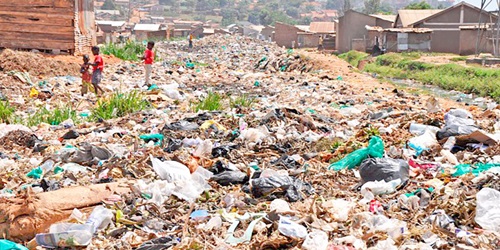
Environmental cleanliness - Index for development
Aside from the provision of clean drinking water, good public places of convenience, first-class tarred roads, communication systems, clinics & hospitals, (with an efficient public health system) schools, adequate housing, well-built markets, recreational centres and the existence of hygienic food joints; a neat environment is a sine qua non for the categorisation of a people’s level of development.
Advertisement
I recall my Sixth Form days in the study of Regional Geography where we used a textbook entitled Tropical World authored by Pierre Gourou. The writer analysed extensively the numerous unsanitary conditions that characterised the African environment.
Our tutor’s focus on the above subject matter was for students to critique the author’s statement “The African stomach under the microscope is a terrible museum of horrors”. Students detested this question because of the phrase “terrible museum of horrors”.
However, over the decades, with the growth in population size and urbanisation, which has the negative effect of putting pressure on social amenities; I wonder if we were justified in abhorring Pierre Gourou’s judgement, bearing in mind the maintenance of our environment from that period to the current day when one identifies the insanitary conditions that abound in some parts of Africa today.
In Ghana, the acquisition of knowledge, development of a moderately good public health system linked to the education of the citizenry and improvement to some extent on our general sanitation system; one would say society has transformed through time and infectious diseases which used to be prevalent have been kept at bay. For instance, Diarrhoeal diseases, such as cholera and dysentery, are always monitored by the Ministry of Health and addressed appropriately when they rear their ugly heads.
Notwithstanding these achievements, our approach to reckless disposal of waste in general, especially organic and plastic waste, is worrisome. Then comes the discarding and management of outmoded electronic gadgets. All these acts of ours have left our precious God-given environment strewn with garbage.
Disposal of Waste
As of now, Waste Collection Companies & Aboboyaas undertake contracts for the collection and disposal of organic and plastic waste all over the country. These companies and individuals work hand-in-hand with the metropolitan, municipal and district assemblies as the case may be. Some of the entities are efficient in the performance of their duties while others are not; due to the varied challenges that confront them.
It is also obvious that these companies focus mainly on the collection of corporate, domestic and market-generated waste, while the waste scattered over some open areas, such as streets and gutters mostly in cities and towns, remains unattended to. This suggests the existence of a gap in the collection of waste by companies and individuals.
Sometime in the recent past, there was a good move by the authorities when they tasked owners of shops and residential properties to clean their frontages in the capital city. The action started vigorously but the tempo sadly died down. It is difficult to tell why the authorities have challenges in finding lasting solutions to the waste menace.
The continuous occurrence of the littering of garbage in open public places seems to suggest that either the citizenry engages in the act deliberately or the placement of waste containers of varied sizes (dust bins, garbage cans, trash cans) at vantage points is inadequate. The situation calls for an emergency and an urgent approach is needed to tackle the problem holistically and effectively in all affected areas in the country.
Bridging the Gap
Considering the gap identified in garbage collection, the writer suggests the utilisation of National Service persons for a period to be identified by the authorities to manage this challenge.
This calls for an amendment to the National Service Act 426. Also, metropolitan, municipal & district assemblies can consider and adopt this proposal of mine and structure a plan for bridging the gap identified, incorporating workable options at various stages of the performance of this task. It is suggested that National Service Persons are drawn from their localities.
They should be well equipped with working gear, boots, masks, hand gloves and relevant tools to undertake this task to rid the environment of filth in areas that the Waste Collection Companies and Aboboyaas do not cover. The remuneration for this category of national service persons should be higher than their counterparts posted to offices.
After the whole of Ghana is cleared of garbage, stringent measures should be put in place to guide and control this undesired behaviour of human activity in our part of the world. After the desired results are attained, National Service persons at this phase could work with the relevant law enforcement bodies to oversee the environment and ensure that the results achieved are maintained.
If the writer’s suggestions are adopted and a clean environment is attained, then the beautification of the environment could follow by the planting of grass and tropical flowers. A totally clean environment will help keep infectious diseases to a minimal level and prolong our life span. To the writer, this is the only way we can alter Pierre Gourou’s assessment of the Tropical World in contemporary times.
The writer is a member of the Bible Study Fellowship (BSF), Ghana.
E-mail: [email protected]




